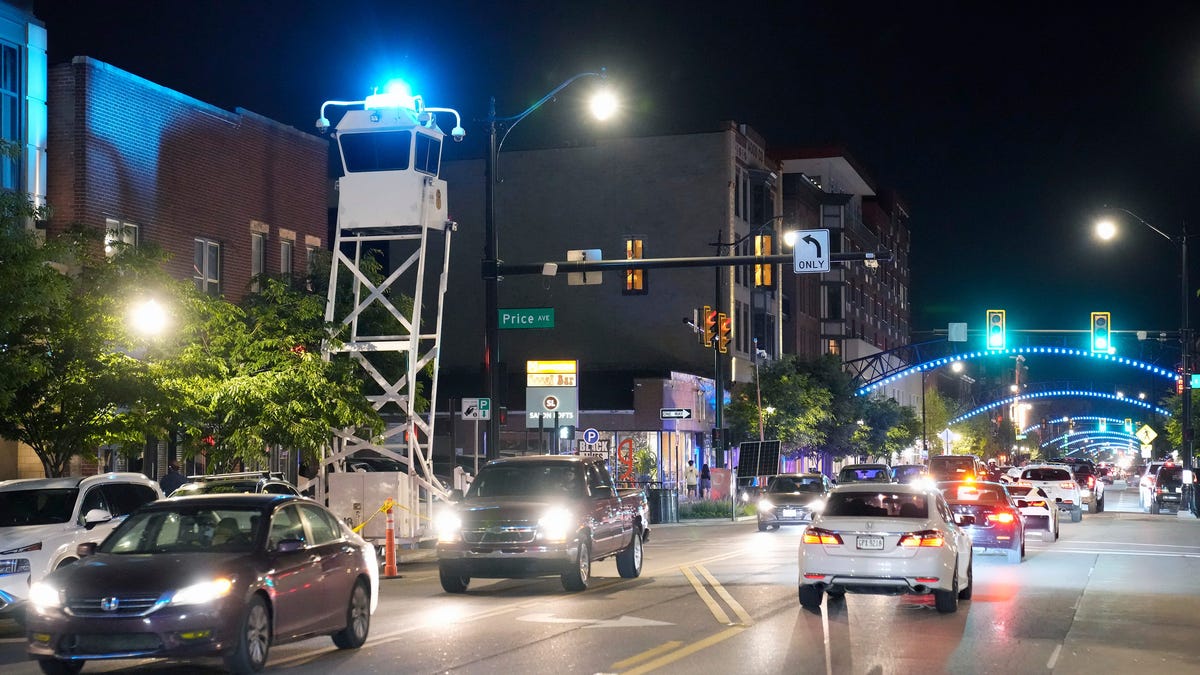Should Drivers Roll Down Their Windows During a Traffic Stop?
On Sunday, NFL wide receiver Tyreek Hill was stopped by Miami-Dade police just before the Miami Dolphins game against the Jacksonville Jaguars. This traffic stop escalated, leading to Hill being removed from his McLaren 720S coupe, forced to the ground, and handcuffed.
A pivotal moment in this incident happened when Hill, after initially lowering his window to show his license, raised it again despite the officer’s requests. This incident was recorded on the officer’s body camera.
While regulations differ from state to state regarding what drivers must do during a traffic stop, experts typically advise that rolling down the window is essential for effective communication with law enforcement. Here’s what you should keep in mind:
Steps to Take When Pulled Over
The American Civil Liberties Union suggests that when you notice flashing lights behind you, you should slow down and safely pull over to stop your vehicle as soon as possible.
Marc Victor, a criminal defense attorney from Chandler, Arizona, elaborates on the necessity of pulling over:
“If the lights are flashing, you must pull over to avoid potentially facing a felony charge for evading law enforcement,” Victor stated. He has produced a series on YouTube titled “How to Survive a Traffic Stop,” focusing on legal advice.
Once stopped, experts recommend that you turn off your vehicle, activate the interior lights if it’s dark, and place your hands where the officer can see them, usually on the steering wheel.
Traffic stops are a common occurrence for Americans, with Stanford University’s Open Policing Project reporting that close to 50,000 motorists are stopped each day.
A study from New York University, conducted alongside the Stanford project in 2020, analyzed nearly 100 million traffic stops in the United States, revealing that Black drivers are about 20% more likely to be stopped than their white counterparts, relative to population distribution.
Contrary to popular belief, Victor advises that officers are not required to explain the reason for the stop, except in California, where a 2024 law mandates that officers must clarify their reasons for pulling someone over. However, they must adhere to constitutional and department protocols during the stop.
Is Rolling Down the Window Necessary?
Opinions differ on whether drivers should lower their windows during a stop, yet it is generally advisable to do so, particularly if asked by an officer.
According to the criminal defense law firm Meltzer & Bell in Fort Lauderdale, Florida, it is important for drivers to roll down their windows when stopped to facilitate smoother interactions with police.
The ACLU recommends rolling down the window at least enough to exchange necessary documents, such as your license, registration, and proof of insurance.
A blog from the Pittsburgh law firm Worgul, Sarna & Ness notes that in Pennsylvania, while rolling down the window is not mandatory, it is highly recommended.
“This not only aids communication but also calms the officer and signals that you have nothing to hide,” the blog states.
If a police officer instructs you to roll down your window, it is advisable to comply.
Further Traffic Stop Guidance from Attorneys
In Florida, Stop and ID laws take effect during a law enforcement stop, regardless of whether the reason is a traffic violation or a suspicion of a crime. Drivers are legally required to identify themselves.
The law is explicit: you must provide identification,” asserts Meltzer & Bell. “Failure to do so during a lawful stop may lead to additional legal consequences from law enforcement.”
It’s wise to have your paperwork ready, though you don’t need to reach for them immediately. Experts typically advise keeping your hands on the steering wheel and avoiding abrupt movements.
“Follow the officer’s instructions,” stresses retired detective Bill Richardson from Mesa, Arizona, who has 16 years of experience as a traffic officer. “If the officer tells you to turn off the radio and stay quiet, do so. You should interact respectfully with the officer, much like you would with a parent or a priest.”
Attorney Victor from Chandler advises that when dealing with police, drivers should remain courteous and avoid arguing or being disrespectful. If an officer requests that you leave your vehicle, comply without dispute. Issues regarding the encounter can be resolved through legal channels afterward.
According to Worgul, Sarna & Ness from Pittsburgh, “A common error is for people to question what they did wrong before they follow the officer’s instructions. This behavior might be viewed as confrontational.”
Contributors to this article include YSL News Network reporters Lauren Castle, Sean Holstege, and Emily L. Mahoney.

